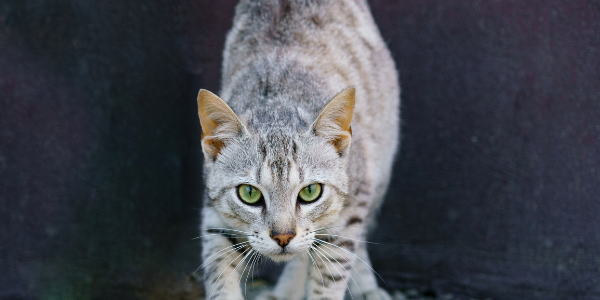Ouch! Cat bites and scratches are not only painful but can also lead to dangerous infections requiring medical treatment or even hospitalisation.
Here’s why cats may start to lash out at their owners, and how we can calm your kitty.
“Why has my cat started attacking me?”
Like any other creature, cats may understandably lash out if they are handled roughly, when they are frightened, or when they are suffering from a painful injury.
Cats may also show aggressive behaviours due to:
- Behavioural issues – these can include:
- Over-aroused play or misdirected predatory behaviours (more common in cats who were socialised poorly or have been played with roughly)
- Redirected aggression from another stressor (e.g. an unfriendly neighbourhood cat hanging around)
- Anxiety
- Other health conditions, which can include:
- Painful conditions such as arthritis or fur matting
- Hyperthyroidism (an overactive thyroid gland releasing excessive hormone)
- Brain lesions, such as tumours
How can our team help?
If your cat is lashing out without an obvious reason, it’s a good idea to book a prompt veterinary consultation for further investigation. We can assess your cat for any underlying medical issues with a full physical examination and sometimes other diagnostic tests such as blood and urine tests and/or joint X-rays.
Depending on the suspected cause of your cat’s behaviour, we may recommend strategies including:
- Avoiding situations that trigger your pet until you can learn recommended strategies for dealing with their issue
- Treating any underlying medical conditions (e.g. a pain relief trial for suspected arthritis)
- Setting up an environmental enrichment program for your cat that doesn’t require human interaction (e.g. the use of interactive toys for feeding and play)
- Providing your cat with private hiding spots where they can retreat to rest calmly
- The use of anti-anxiety calming medications
- Referral for behavioural modification therapy, involving desensitisation and counter-conditioning training to teach your cat that human handling is safe
For more advice on feline mental health support, consult our behaviourally-brainy team!

